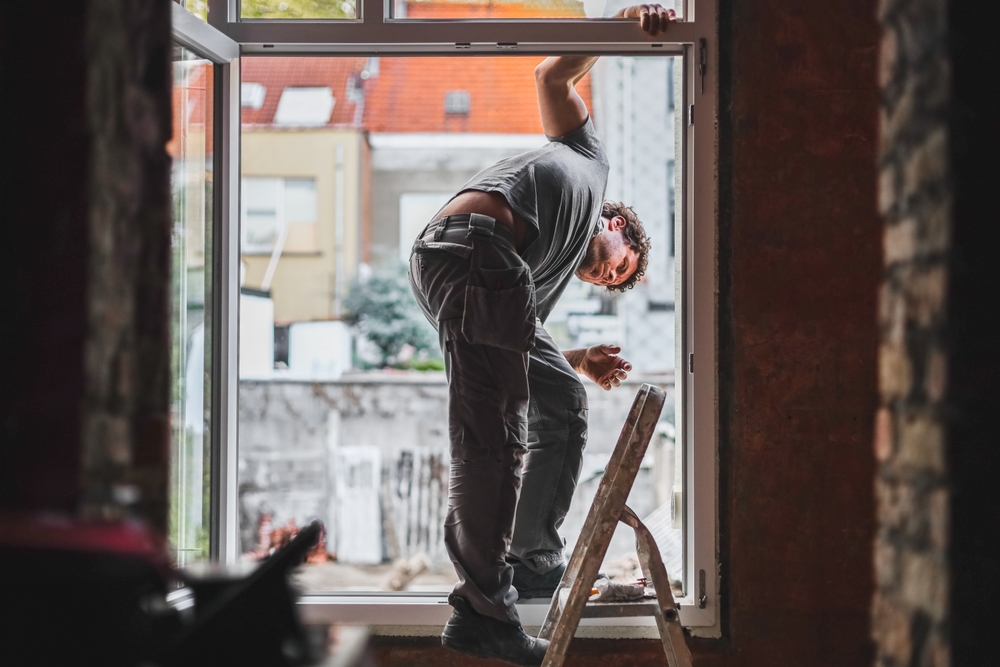
One of our family friends loves to tackle DIY projects. No matter what it is, he thinks that he can attend YouTube University and do just about anything around the house. However, that’s not always the case. While it may have worked out when he laid concrete in his backyard or added new cabinets to their laundry room, some DIY projects can actually land you in hot water legally. If you want to avoid violations, it’s important to know what is allowed and what isn’t. Here are eight such projects that could land you in legal trouble if you’re not careful.
1. Building Without a Permit
Many homeowners think small renovations don’t need approval, but even a shed or deck may require a city permit. Building without one can result in stop-work orders, forced demolitions, or steep fines. Local ordinances vary, but anything that changes a structure’s footprint or electrical system likely needs inspection. Some homeowners only find out after trying to sell, when the unpermitted work surfaces during appraisal. Always check local zoning and permit rules before starting construction.
2. DIY Electrical Work
Tackling wiring yourself might seem like a money-saver, but it’s one of the most heavily regulated areas of home improvement. Faulty wiring can cause fires, violate code, and void insurance claims if damage occurs. In many states, only licensed electricians are legally allowed to modify major electrical systems. Even swapping outlets or installing new light fixtures could be off-limits without inspection. It’s one of those projects that’s best left to a certified professional, both for safety and legality.
3. Plumbing Without Certification
Replacing faucets or fixing a leak is fine, but altering plumbing lines or water heaters without certification can cause problems. Municipal plumbing codes often require licensed plumbers for certain jobs due to contamination risks. A DIY mistake could lead to water damage or cross-connection issues that make tap water unsafe. If discovered, local authorities can require the work to be redone at your expense. That’s a costly lesson in why plumbing isn’t always a “simple fix.”
4. Installing a Fence on the Wrong Property Line
Fence disputes are one of the most common reasons neighbors take each other to court. Even if you’re certain about your boundary, property lines can be deceiving without an updated survey. Building even a few inches over can trigger legal action or force you to tear it down. Many local governments require permits or neighbor notifications before installing a fence over a certain height. Double-check property maps and talk to your neighbor before you post that first stake.
5. Removing Load-Bearing Walls
Open-concept living is popular, but taking out a load-bearing wall without a structural engineer’s input is both dangerous and illegal. These walls support the home’s framework, and altering them can compromise the entire structure. Building inspectors can fine homeowners or require reconstruction if they find unapproved modifications. Worse yet, an accident during demolition could lead to injury or insurance denial. Always get a professional inspection before making major structural changes.
6. DIY Car Repairs in Residential Areas
Many cities have ordinances restricting vehicle repairs on residential properties, especially if they create noise, waste, or safety concerns. Changing your oil or replacing brake pads might be fine, but rebuilding an engine in your driveway could violate zoning laws. Violations can lead to citations or neighborhood complaints. Additionally, improper disposal of fluids like oil or coolant can trigger environmental fines. It’s smarter (and sometimes cheaper) to use a certified auto shop for complex repairs.
7. Installing or Modifying Septic Systems
This one can bring massive legal trouble if done wrong. Septic systems involve health department regulations due to potential contamination of groundwater and soil. DIY installation or modification without permits is illegal in most jurisdictions. Failing systems can leak sewage into the environment, leading to fines or even criminal charges in severe cases. If your home relies on septic, always work with a licensed installer and secure the proper inspections.
8. Adding Solar Panels Without Approval
Solar panels can boost home value and cut energy costs, but most states require specific permits and utility approvals. DIY installations without licensed electricians or engineers can violate building and electrical codes. Some homeowners have even been fined for connecting panels directly to the grid without inspection. Improper mounting can void roof warranties or cause leaks. Before going green, make sure your setup meets all state and energy compliance standards.
Saving Money Shouldn’t Cost You Legally
DIY projects are satisfying, but they can turn disastrous when regulations are ignored. From construction codes to zoning laws, cutting corners often leads to costly consequences that wipe out any savings. The best approach is to do your homework. Call your city’s building department, check for required licenses, and when in doubt, consult a professional. Sometimes the smartest DIY move is knowing when to call for help.
Have you ever taken on a DIY project that went sideways or almost landed you in trouble? Share your story in the comments and help others avoid the same mistakes.
What to Read Next
- 10 DIY Plumbing Repairs That Flood Homes Instantly
- 9 DIY Kitchen Projects That Fail Before Thanksgiving
- Why Do Men Overestimate Their DIY Skills Until They Break Something They Can’t Fix?
- Why Do Men Think DIY Haircuts Save Money When They Don’t?
- 7 DIY Roof Repairs That Lead to Hospital Visits
The post 8 DIY Projects That Can Land Men in Legal Trouble appeared first on Clever Dude Personal Finance & Money.







